
or

The year kicked off with the Supreme Court ruling that candidates cannot seek votes on religious lines, not limited only to the candidate’s religion but also the religion of the voters. In Abhiram Singh vs CD Commachen, a seven judge constitution bench in a 4:3 ruling held that an election will be declared annulled not only if the votes are sought in the name of the religion of the candidate but also when the candidate appeals for votes on the basis of the religion of the voters, candidate’s election agents or anyone else with the consent of the candidate appearing for the poll. The apex court interpreted Section 123(3) of the Representation of the People Act. The bench was led by the then CJI, TS Thakur.

For the first time in the history of independent India, four senior Supreme Court judges called a press conference and expressed anguish over the administration of India’s top court under the Chief Justice of India. Justice J Chelameswar – at whose residence the press conference was held – along with Justices Ranjan Gogoi, Kurian Joseph, and Madan Lokur, trained guns at CJI Dipak Misra citing a ‘threat to democracy’.
They then released a letter that they claimed to have sent to Misra. Here are the top five highlights of the letter;
The allegations drew the attention of the entire judiciary – from the likes of RS Sodhi, Prashant Bhushan, Indira Jaising, and Soli Sorabjee reacting. Some called it a national embarrassment and demanded the impeachment of the four judges, while others agreed with the approach taken by them.

Indira Jaising, one of the senior advocates who had given up her senior advocate gown for a new system of senior designation of advocates, breathed a sigh of relief when the apex court introduced a new system for designating senior advocates by a committee headed by the CJI and other members being two senior judges, Attorney General and another member from the bar to decide. The court also ruled the same procedure for the High Courts too.
This was a major effort to streamline and bring in transparency into the process of designating advocates as “seniors”.
The court while delivering the verdict also applauded Jaising for her effort to bring in her more transparency into the system and so that complete value is given to the credibility, objectiveness and fairness of the system. This system of appointing a senior advocate was through a “strict process of scrutiny leaving no scope for any doubt or dissatisfaction in any matter.”

The idea of a Goods and Services Tax (GST) for India was first mooted sixteen years back, during the Prime Ministership of Shri Atal Bihari Vajpayee. Thereafter, on 28th February, 2006, the then Union Finance Minister in his Budget for 2006-07 proposed that GST would be introduced from 1st April, 2010. The Empowered Committee of State Finance Ministers (EC), which had formulated the design of State VAT was requested to come up with a roadmap and structure for the GST. Joint Working Groups of officials having representatives of the States as well as the Centre were set up to examine various aspects of the GST and draw up reports specifically on exemptions and thresholds, taxation of services and taxation of inter- State supplies. Based on discussions within and between it and the Central Government, the EC released its First Discussion Paper (FDP) on GST in November, 2009. The FDP spelled out the features of the proposed GST and has formed the basis for the present GST laws and rules.
After GST Council approved the Central Goods and Services Tax Bill 2017 (The CGST Bill), the Integrated Goods and Services Tax Bill 2017 (The IGST Bill), the Union Territory Goods and Services Tax Bill 2017 (The UTGST Bill), the Goods and Services Tax (Compensation to the States) Bill 2017 (The Compensation Bill), these Bills were passed by the Lok Sabha on 29th March, 2017. The Rajya Sabha passed these Bills on 6th April, 2017 and were then enacted as Acts on 12th April, 2017. T 2015. 6 on 08.09.2016
Thereafter, State Legislatures of different States have passed respective State Goods and Services Tax Bills. After the enactment of various GST laws, GST was launched with effect from 1st July 2017 by Narendra Modi, Hon’ble Prime Minister of India in the presence of Sh.Pranab Mukherjee, the then President of India in a mid-night function at the Central Hall of Parliament of India.

The Insolvency and Bankruptcy Code, 2016 (IBC) is the bankruptcy law of India which seeks to consolidate the existing framework by creating a single law for insolvency and bankruptcy. The Insolvency and Bankruptcy Code, 2015 was introduced in Lok Sabha in December 2015. It was passed by Lok Sabha on 5 May 2016.
The Code received the assent of the President of India on 28 May 2016. Certain provisions of the Act has come into force from 5 August and 19 August 2016. The bankruptcy code is a one stop solution for resolving insolvencies which at present is a long process and does not offer an economically viable arrangement. A strong insolvency framework where the cost, time, incurred is minimised in attaining liquidation has been long overdue in India.
The Code was passed by parliament in May 2016 and became effective in December 2016. It aimed to repeal the Presidency Towns Insolvency Act, 1909 and Sick Industrial Companies (Special Provisions) Repeal Act, 2003, among others. The first insolvency resolution order under this code was passed by National Company Law Tribunal (NCLT) in the case of Synergies-Dooray Automotive Ltd on 14 August 2017. The plea for insolvency was submitted by company on 23 January 2017. The resolution plan was submitted to NCLT within a period of 180-day period as required by the code, and the approval for the same was received on 2 August 2017 from the tribunal. The final order was uploaded on 14 August 2017 on the NCLT website.

The much-awaited Real Estate Act comes into force with a promise of protecting the right of consumers and ushering in transparency but only 13 states and Union Territories (UTs) have so far notified rules.
The government has described the implementation of the consumer centric Act as the beginning of an era where the consumer in king. Real estate players have also welcomed the implementation of the Act, saying it will bring a paradigm change in the way the Indian real estate sector functions. The government has brought in the legislation to protect home buyers and encourage genuine private players.
The Real Estate (Regulation and Development) Bill, 2016, (RERA Act), was passed by Parliament in March 2015 and all the 92 sections of the Act comes into effect from 1 May. “The Real Estate Act coming into force after a nine-year wait and marks the beginning of a new era,” Housing and urban poverty alleviation (HUPA) minister M. Venkaiah Naidu said. The minister said the law will make “buyer the king”, while developers will also benefit from the increased buyers’ confidence in the regulated environment.
“The Act ushers in the much-desired accountability, transparency and efficiency in the sector, defining the rights and obligations of both the buyers and developers,” Naidu said. The developers will now have to get the ongoing projects that have not received completion certificate and the new projects registered with regulatory authorities within 3 months.

Justice CS Karnan, the first sitting judge in the judicial history of independent India to be jailed for contempt of court by the Supreme Court over his scandalous remarks against several superior judges, walked out a free man on Wednesday from a Calcutta jail.
He had spent six months in jail. A seven judge bench of the top court, led by former chief justice of India JS Khehar, had asked him to apologise or face jail term. Karnan stubbornly refused to take back his words, choosing to stay away from the jampacked open court hearings after putting in a rare appearance during which he portrayed himself as a victim of the system.
In court, he alternated between acting passive and aggressive, blamed his mental state on the court’s decision to withdraw all judicial and administrative duties from him.

The government constituted a 10- member committee of experts headed by former Supreme Court justice B.N. Srikrishna in July to study various issues relating to data protection. The committee of experts on data protection framework will be conducting a series of stakeholders’ consultation meetings across different cities in January to seek inputs for securing digital transactions and addressing customer and privacy protection issues.
Meetings are scheduled to take place in Delhi, Hyderabad, Bengaluru and Mumbai in January, said a statement released by the ministry of electronics and information technology. On 27 November, the government issued a white paper drafted by the committee of experts on data protection framework and sought public comments till 31 January.
The committee, in the white paper, seeks to put the onus on stakeholders and the public through a questionnaire on issues such as collection of personal data, consent of consumers, penalties and compensation, code of conduct and the enforcement model that should be set up.
On 31 July, the government constituted a 10-member committee of experts headed by former Supreme Court justice B.N. Srikrishna to study various issues relating to data protection and make specific suggestions on the principles to be considered for data protection as well as suggest a draft data protection bill. Other members of the committee include telecom secretary Aruna Sundararajan, Unique Identification Authority of India chief executive Ajay Bhushan Pandey and additional secretary in the information technology ministry Ajay Kumar.
The white paper also seeks “to designate certain lawful grounds under which data can be processed, even in the absence of consent”.

Justice K S Puttaswamy (Retd.) and Anr. Versus Union of India And Ors. Writ Petition (Civil) No. 494 Of 2012
The Supreme Court, on 24 August 2017 declared that the right to privacy is a fundamental right as enshrined in the Constitution of India. The nine-judge bench ruled that the right to privacy is part of Article 21. This overwhelming ruling is an eventuality of the petition challenging the constitutional validity of the Aadhaar scheme. This ruling urges the government to develop a mechanism to protect data to safeguard the privacy of individuals. While rendering this judgment, the top court asserted that sexual orientation is part of the right to privacy and also the right to choose one’s food habits.
This has direct repercussions on Section 377 of IPC and Maharashtra’s beef ban. This verdict is a victory for the Indian ethos as it averts the state’s watchful gaze on ‘the lives of others’.

Self-styled spiritual guru Gurmeet Ram Rahim Singh was on Monday sentenced to 20 years in prison for the rape of two women followers in 2002, by a judge who flew by government helicopter to conduct court at a prison in Haryana’s Rohtak. The 50-yearold chief of the Dera Sacha Sauda sect sat on the floor and wept as he was sentenced.
Ahead of the judge’s order, thousands of soldiers enforced a lockdown in Rohtak and other parts of Haryana and Punjab, where Ram Rahim has a mass following. His followers went on a deadly rampage after he was convicted on Friday, with 38 people killed and over 200 injured in the violence. There were no reports of violence on Monday after Ram Rahim was sentenced. The Dera Sacha Sauda chief’s lawyers, who pleaded for a lighter sentence in view of what they called his philanthropic work, have said they will appeal in a higher court.
The police in Sirsa, where Ram Rahim’s 1,000-acre main base is located, have been urging his devotees to emerge from the campus. Tens of thousands left Sirsa for their homes in buses since Sunday. The police said thousands still remain and are refusing to leave. The Dera chief’s followers insist the flamboyant Ram Rahim is innocent.
Prime Minister Narendra Modi warned on Sunday that “violence is not acceptable in the nation, in any form”. But his party, the BJP, which governs Haryana, has come under heavy fire for failing to prevent the outbreak of violence and allowing the 50- year-old guru to travel in a luxury chopper to jail.
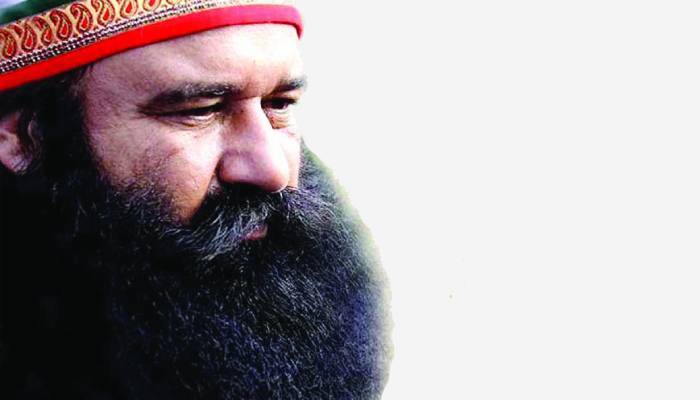
The Supreme Court has made it easier for couples to mutually call off their marriage. The procedure of divorce is extremely time-consuming in our country. As per the Hindu Marriage Act, 1955, if both parties agree, they can file for a mutual divorce.
But as part of the procedure, the couple is required to live separately at least for a year.
In order to expedite the mutual divorce process, the apex court held that the minimum cooling period of six months for granting the decree of divorce under the Hindu law could be waived by a trial court if there was no possibility of cohabitation between an estranged couple

According to the Medical Termination of Pregnancy Act, 1971, an order for abortion may only be granted before 20 weeks of pregnancy. Only in exceptional circumstances where the pregnancy poses a threat to the life of the mother or the child, may the court grant abortion past 20 weeks, subject to the opinion of a medical board.
The courts in India have been highly archaic and pedantic while reading the exception beyond 20 weeks. In March 2017, the Supreme Court once again rejected a plea for abortion of a 26-week-old foetus that showed indications of Down syndrome.
In the past, the Supreme Court has maintained similar positions and has shown some leniency, for abortion post 20 weeks, where the pregnancy is a result of sexual violence. The arbitrary nature of relying on medical boards, therefore, still remains good law.

India’s long wait for justice in the Nirbhaya Rape Case has been addressed by the top court by awarding the death sentence to all the four convicts. The court held that the brutal and barbaric nature of the crime, which shook the entire country, deserve the extreme punishment. Akshay Thakur, Pawan Gupta, Vinay Sharma and Mukesh Sharma were sentenced to death by a trial court in 2013 for the rape and murder of a 23- year-old woman in Delhi.
This ruling received a loud applause from the masses and paved the way for strict punishments. It has also triggered tougher laws dealing with rape and other crimes against women.
Nevertheless, one exemplary punishment cannot weed out the problem of women’s safety in the country. There is still a long way to go to ensure women’s safety and an environment free from the shackles of the patriarchal norms.
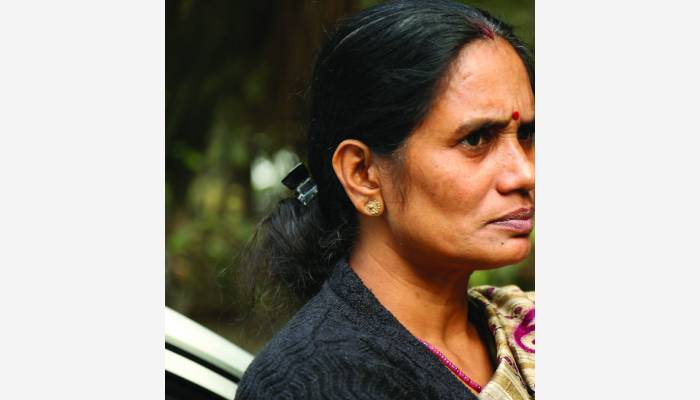
Chief Justice Dipak Misra, who had last year made it a must for the National Anthem to be played at the beginning of every movie screening as it would “instil a feeling of patriotism and nationalism” and “it is the duty of every citizen to abide by the ideals ingrained in the Constitution and as such show respect to the National Anthem and the National Flag”. However, later, the Supreme Court made some crucial observations – it indicated that it might modify its own order of November 2016, by replacing the word “shall” with “may”.
“People do not need to stand up at a cinema hall to be perceived as patriotic,” the court said, adding that it “cannot be assumed that if a person does not stand up for the national anthem, then he is less patriotic”.
Finally, it remarked that “Desirability is one thing but making it mandatory is another. Citizens cannot be forced to carry patriotism on their sleeves and courts cannot inculcate patriotism among people through its order.”
In an era where terms like “patriotism” and “nationalism” have become fluid and are thrown around in accordance with political propaganda and vendettas, this appeal for reviewing the foundations of the understanding of these concepts has become close to indispensable.
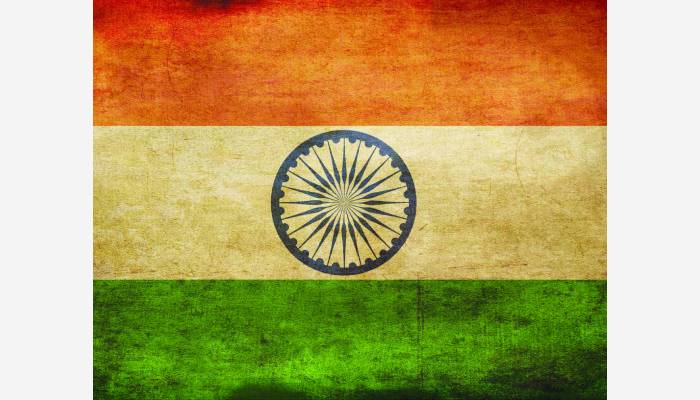
Tabled in the Lok Sabha, the lower house of the Indian parliament on December 28, 2017 and was passed almost without any debate. The justification of the Bill is that due to the presence of instant Triple Talaq or Talaq-ebidat, Muslim women are oppressed, discriminated against and ‘left with nothing’.
Triple Talaq, where the husband pronounces Talaq thrice and instantly executes divorce, is truly discriminatory and robs the women of any rights and security. In the advanced age of technology, triple Talaq has been executed through telegram, instant messages, and over the phone.
The Triple Talaq Bill claims to rectify that situation by criminalizing Muslim men who will execute divorce through triple Talaq in future.
The Bill states that if a Muslim woman files an FIR against her husband for pronouncing Triple Talaq, that person will be put behind bars for three years without any bail. It also states that the husband will have to provide subsistence allowance to his wife and kids of the amount as decided by the magistrate.

Refusing to entertain yet another plea against ‘Padmaavat’, the Supreme Court (SC) firmly said that it’s the court’s job to “function as a constitutional court”, which it did yesterday and that the job to maintain law and order is the responsibility of governments and not a court of law’s. A day after it lifted a four-state ban on the controversial film ‘Padmaavat’, scheduled for release next week, the apex court was again petitioned for a ban. The petitioner, a lawyer called Manohar Lal Sharma, said the Censor Board clearance to the film was “illegal”, and added that its release may create law and order problems.
Sorry, said the three-judge bench of the SC headed by Chief Justice of India (CJI) Dipak Misra. “The court has to function as a constitutional court and it has already yesterday in its interim order said that states can’t block a movie from screening,” said the SC bench, rejecting the plea. The bench then reiterated what it said yesterday when clearing the film – earlier called – ‘Padmavati’ – that it is the various governments’ job to deal with any potential law and order issues. That isn’t the job of the court, it said.
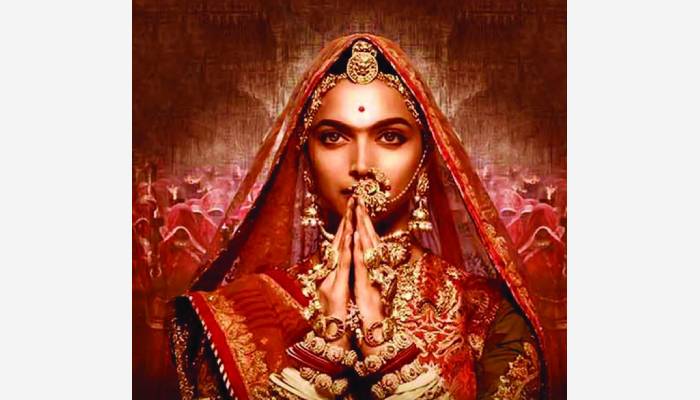
The Allahabad High Court acquitted Nupur and Rajesh Talwar in the 2008 murder case of their 14-year-old daughter Aarushi and domestic help Hemraj, saying they could not be held guilty as per the circumstances and the evidence on record. The verdict ends a nineyear ordeal of the Noida-based dentist couple who were found guilty by a Ghaziabad CBI court on November 26, 2013 and were serving life sentence in Dasna jail. The Talwars, who are both dentists, are expected to be freed today from Ghaziabad’s Dasna jail after the completion of paperwork. The CBI did not immediately say if it would appeal against the high court judgement. It said it would study the order and decide the future course of action.
A division bench comprising justices B K Narayana and A K Mishra allowed the appeals of the Talwars, holding that neither the circumstances nor the evidence on record established a chain showing their involvement in the murders of Aarushi and Hemraj. Pronouncing the verdict in a packed court room, the bench said that it is a fit case where benefit of doubt can be given to the appellants and set aside the judgement of the CBI court convicting the Talwars.
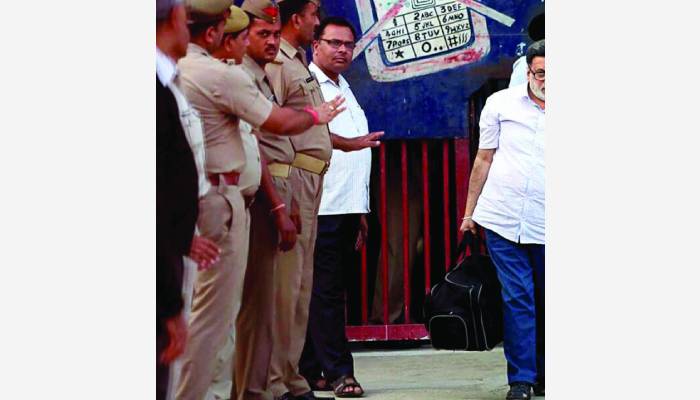
The Central Bureau of Investigation filed the chargesheet in late 1997. The 16 accused were charged of causing death by negligence, endangering life and relevant provisions of the Cinematography Act, 1952. For 20 long years, the case dragged on in the sessions, high and Supreme Court. In the course of the trial, 14 people including the Ansals were sentenced to jail terms ranging from 2 to 7 years. The Ansals were also asked to pay Rs 60 crores to the Delhi Government for the construction of a trauma centre.
Finally, after a review petition by the CBI in February 2017, the Supreme Court of India sentenced Gopal Ansal to one year in prison, but his elder brother Sushil Ansal escaped a jail term because of his old age and the fact that he had served five months and twenty days as an undertrial.
Every year on 13 June, the Association of Victims of Uphaar Fire Tragedy’ (AVUT) meet for a memorial outside the Uphaar Theatre. There’s prayer and remembrance for the departed.

A special TADA court convicted six persons including mastermind Mustafa Dossa and extradited gangster Abu Salem in the 1993 Mumbai serial blasts case, 24 years after the attacks left 257 people dead. The court, however, let off one accused — Abdul Quayyum — for want of evidence.
This was the second leg of the trial. All the seven accused were facing multiple charges which included criminal conspiracy, waging war against the Government of India and murder. In the first leg of the trial that concluded in 2007, the TADA court had convicted 100 accused in the case, while 23 people were acquitted.
The present trial of the seven accused — Salem, Dossa, Karimullah Khan, Firoz Abdul Rashid Khan, Riyaz Siddiqui, Tahir Merchant and Quayyum — was separated from the main case as they were arrested at the time of conclusion of the main trial. The dastardly attacks had also left 713 seriously injured and destroyed properties worth ?27 crore. Besides Siddiqui, all the other five convicts were pronounced guilty by Special Judge GA Sanap for criminal conspiracy, murder under various sections of the IPC besides offences under TADA, Explosives Act, Explosive Substances Act, Arms Act and Destruction of Public Property Act. Siddiqui was convicted only under TADA, for helping Salem and others in transportation of arms.
The court, however, absolved all the seven accused in the case from the charge of waging war against the nation.
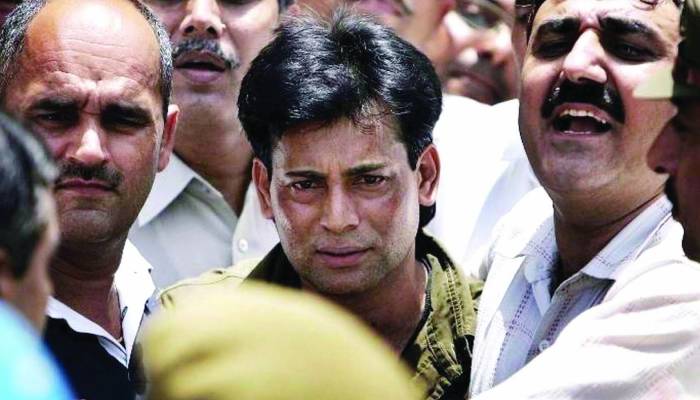
The Supreme Court banned the sale of fireworks during Diwali festival, hoping to prevent the usual spike in toxic air pollution levels that accompany the holiday. Last year’s Hindu festival of lights, in which tens of thousands of firecrackers are burst in Delhi over several days, left the city sheeted in toxic smog that forced the closure of schools, power stations and construction sites.
The increase in airborne pollution to levels up to 29 times higher than World Health Organisation standards led the Supreme Court in November 17 to ban the sale of fireworks in the Indian capital. The ban was overturned after a challenge by fireworks manufacturers, but India’s highest court said it would remain in place until November 17 to monitor whether air pollution levels would be substantially affected.

Exception clause to the heinous offence of rape allows a man to have sex with his wife who is not aged below 15. The Supreme Court held that sexual intercourse by a man with his wife, who is below 18 years of age, is rape. A girl child below the age of 18 cannot be treated as a commodity having no say over her body or someone who has no right to deny sexual intercourse to her husband, the Supreme Court held.
“Human rights of a girl child are very much alive and kicking whether she is married or not and deserve recognition and acceptance,” a Bench of Justices Madan B. Lokur and Deepak Gupta observed.
The two judges wrote separate judgments totalling 127 pages. The court read down Exception 2 to Section 375 (rape) of the Indian Penal Code (IPC), which allowed the husband of a girl child — between 15 and 18 years of age — blanket liberty and freedom to have non-consensual sexual intercourse with her. Her willingness or consent was of no concern. The husband in such cases was not punished for rape.
The exception had remained an anomaly because Section 375 itself mandated that sex with a girl below 18 years of age, with or without her consent, was statutory rape. An unmarried girl child can prosecute her rapist, but a married girl child aged between 15 and 18 could not even do that, Justice Lokur said, pointing out the injustice.
“A child remains a child whether she is described as a street child or a surrendered child or an abandoned child or an adopted child. Similarly, a child remains a child whether she is a married child or an unmarried child or a divorced child or a separated or widowed child. At this stage we are reminded of Shakespeare’s eternal view that a rose by any other name would smell as sweet — so also with the status of a child, despite any prefix,” Justice Lokur wrote. The court, however, refrained from dealing with the issue of marital rape of a woman aged above 18.

The LW Bureau is a seasoned mix of legal correspondents, authors and analysts who bring together a very well researched set of articles for your mighty readership. These articles are not necessarily the views of the Bureau itself but prove to be thought provoking and lead to discussions amongst all of us. Have an interesting read through.

Lex Witness Bureau

Lex Witness Bureau

For over 10 years, since its inception in 2009 as a monthly, Lex Witness has become India’s most credible platform for the legal luminaries to opine, comment and share their views. more...
Connect Us:


The Grand Masters - A Corporate Counsel Legal Best Practices Summit Series
www.grandmasters.in | 8 Years & Counting
The Real Estate & Construction Legal Summit
www.rcls.in | 8 Years & Counting
The Information Technology Legal Summit
www.itlegalsummit.com | 8 Years & Counting
The Banking & Finance Legal Summit
www.bfls.in | 8 Years & Counting
The Media, Advertising and Entertainment Legal Summit
www.maels.in | 8 Years & Counting
The Pharma Legal & Compliance Summit
www.plcs.co.in | 8 Years & Counting
We at Lex Witness strategically assist firms in reaching out to the relevant audience sets through various knowledge sharing initiatives. Here are some more info decks for you to know us better.
Copyright © 2020 Lex Witness - India's 1st Magazine on Legal & Corporate Affairs Rights of Admission Reserved